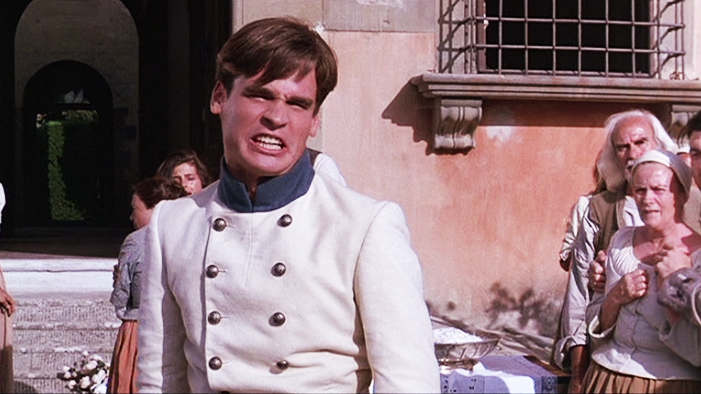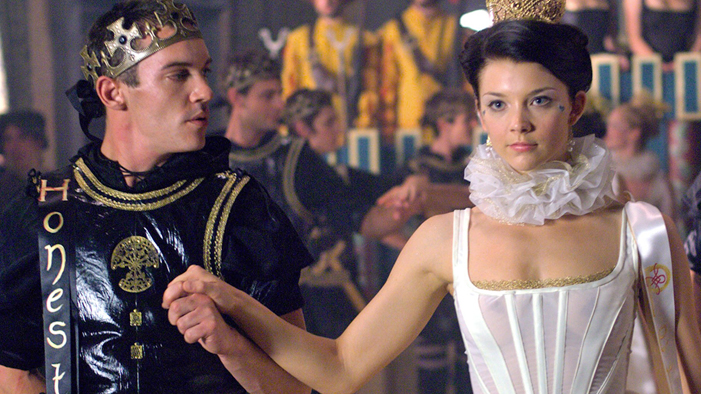How to Break Up with Someone, According to Shakespeare

Like most people, I initiate all my break-ups by ineloquently barfing out “IT’S NOT YOU, IT’S ME” and then fleeing the scene. But it sometimes occurs to me—as I change my name, leave the country, and fake my own death—that there might be a better way. Shakespeare was the master of stringing words together to make whole sentences, and he did it often, so it stands to reason that somewhere in there he offered up advice on how to dump someone. Right?
I’m here to tell you that he did. Here’s what you say:
When you break up with them face-to-face:
“Away, you cut-purse rascal! you filthy bung, away!”
—The Merry Wives of Windsor, Act 4, Scene 2
When they say “But I love you!” and that you’re the best thing that ever happened to them:
“Farewell, and thanks.”
—Antony and Cleopatra, Act 5, Scene 2
When you take the coward’s way out and break up with them over text:
“The text most infallibly concludes it.”
—Love’s Labour’s Lost, Act 4, Scene 2
When you have your friend do it for you:
“Give me some help here, ho!”
—All’s Well That Ends Well, Act 2, Scene 1
When you tell him there are plenty of fish in the sea and he takes it literally:
“Nay, you need not to stop your nose, sir; I spake
but by a metaphor.”
—All’s Well That Ends Well, Act 5, Scene 2
When you try to ease the blow by telling them they’re too good for you, anyway:
“Farewell, thou art too dear for my possessing.”
—Sonnet 87, ln. 1
When they ask why you’re doing this:
“You, minion, are too saucy.”
—The Two Gentlemen of Verona, Act 1, Scene 2
When this whole thing is taking longer than expected and you have somewhere to be:
“Give me now leave, to leave thee.”
—Twelfth Night, Act 2, Scene 4
When you’re breaking up with your boyfriend John because of his terrible manners:
“What foolish master taught you these manners, Sir John?”
—Henry IV Part 2, Act 2, Scene 1
When you’re not even sure if you should break up with them, so you take an online quiz about it:
“The instruments of darkness tell us truths.”
—Macbeth, Act 1, Scene 3
When you already broke up with them but they won’t stop texting you:
“No more! The text is foolish.”
—King Lear, Act 4, Scene 2
When you’re listing off all the reasons you’re dumping him, and he turns the tables on you:
“Many receipts he gave me.”
—All’s Well That Ends Well, Act 2, Scene 1
When you’re finally single again and you see a cute person walk by:
“Cry ‘holla’ to thy tongue, I prithee.”
—As You Like It, Act 3, Scene 2
When you catch him cheating:
“Thou liest, abhorred tyrant; with my sword
I’ll prove the lie thou speak’st.”
—Macbeth, Act 5, Scene 7
When he starts crying and begging you to forgive him:
“O, he is wounded; I thank the gods for’t.”
—Coriolanus, Act 2, Scene 1
When they beg you for a second chance:
“Out of my door, you witch, you hag, you baggage, you polecat, you runyon! out, out! I’ll conjure you, I’ll fortune-tell you.”
—Henry IV Part 2, Act 4, Scene 6















